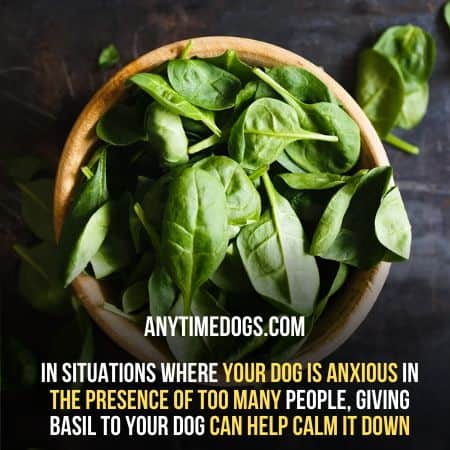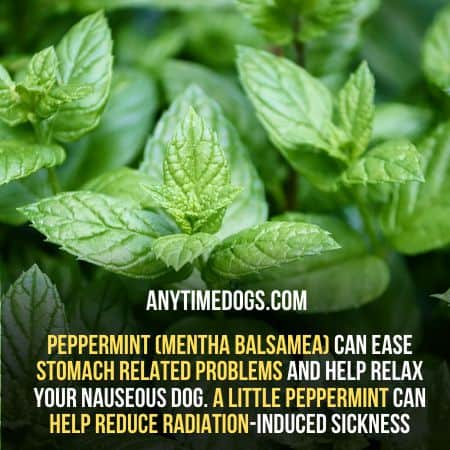Basil has a strong, sweet, and aromatic flavor. Garnish it on your food, and you have the room engulfed in its aroma. As a dog owner, you often find yourself searching up for acceptable foods for your furry friend’s health. The question arises, can dogs eat basil?
The short answer is, yes! Dogs can have basil. Basil or Ocimum basilicum belongs to the family of Lamiaceae or Labiatae (mints). It has many health benefits not only for humans but also for the man’s best friend.
Read this article and gain an insight into whether dogs can eat basil and the benefits of basil.
Can Dogs Eat Basil?
So we have established that dogs can eat basil. Basil is one of the few herbs that have been declared non-toxic for pets by the American Society for the Prevention of Cruelty to Animals (ASPCA)
But how much is permissible for your pup? A little goes a long way. Remember, too much of any food can be unsafe for your dog. Too much of this herb can cause:
- Vomiting
- Disrupt bowel movements.
- Result in an allergic reaction.
- Develop skin issues, especially in dogs with a sensitive coat such as Pitbulls.
It is best to consult your veterinarian about the amount of basil that is safe for your canine friend. Your dog might even be allergic to this herb, so it is always better to be safe than sorry!
Let us now look at a few benefits of this small herb packed with nutrition!
Health Benefits Of Basil For Dogs
Basil is, without a doubt, a star ingredient in many foods. It is jam-packed with antioxidants.
As a dog owner, it is always a good idea to keep a little bit of basil in your kitchen. The beta-caryophyllene present in basil provides anti-inflammatory and anti-viral properties. It is also known to contain antimicrobial properties.
Basil is rich in the following
- Vitamin A, B complex, C and E
- Calcium
- Iron
- Potassium
Hence, it is no doubt that it can help cure arthritis pain, prevent illnesses like cancer, and keep cellular damage at bay. Basil can also be useful in freshening your dog’s bad breath and preventing cognitive disabilities in aging dogs. Apart from basil fresh cilantro is also a good option for bad breath.

In situations where your dog is anxious in the presence of too many people, giving basil to your dog can help calm it down. Basil acts as a calming agent for nervous or anxious dogs. So having a few fresh leaves at hand might save the day!
Can Dogs Eat Basil? 3 Ways To Incorporate It In Your Dog’s Diet
Dogs can eat basil in small quantities. Just like dogs should not consume almond milk or whipped cream in large quantities, basil should also be served in minimal amounts.
Mentioned below are a few ways to incorporate this delicious and nutritious herb into your furkid’s diet.
1) Garnish It On Your Dog’s Food:
Chop a few leaves and serve them atop your dog’s food and let it enjoy a sweet and minty addition to its food. This will also help strengthen their immune system.
2) As A Treat:
You can give freshly picked basil leaves to your dog as a treat!
3) Customized Pesto For Dogs:
Traditional pesto recipe includes garlic, a toxic ingredient for your canine friend. Read up on “Can dogs eat garlic bread” and find out why food containing garlic is injurious to your puppy’s health.
4 Herbs That Are Good For Dogs
Check out this list of herbs that are not only safe but come with nutritious benefits!
1) Peppermint:
Peppermint (Mentha balsamea) can ease stomach related problems and help relax your nauseous dog. A little peppermint can help reduce radiation-induced sickness.
Although keep in mind, too much peppermint can cause liver or kidney problems.
2) Rosemary:
Rosemary or Rosemarinus Officinalis is rich in antioxidants, vitamins, and minerals. It can be used as a natural insect repellant.
3) Mint:
An inexpensive way of freshening your dog’s breath.
4) Cinnamon:
Ceylon cinnamon can help regulate blood sugar levels and improve the cognitive abilities of your pooch. It has anti-fungal and anti-bacterial properties and keeps your dog energized.
Conclusion:
You now have all the information you need related to your pup’s relationship with basil. However, to ensure the complete safety of your dog, refer to your veterinarian.
A veterinarian can best guide you about the frequency and quantity of basil or any other herb to add to your dog’s food.
Go ahead and add a little bit of basil to keep tummy problems in your dog at par!


